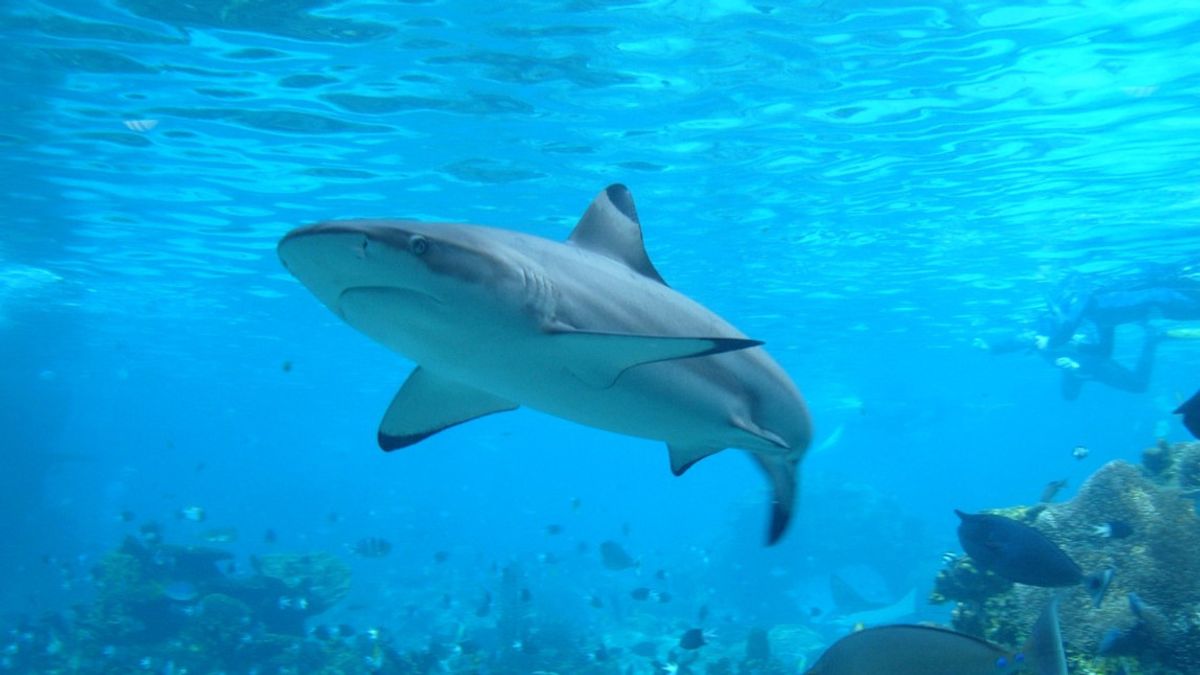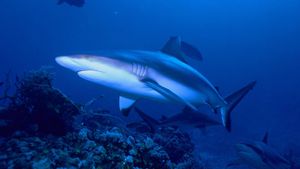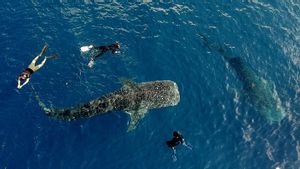JAKARTA - After implementing an 11-year ban on shark catching. The Maldives plans to allow the re-capture of one of the top predators in the ocean.
As an island nation that relies on state cash income from the marine tourism sector, sharks are the main attraction for tourists to dive with these exotic animals.
However, reports of a decline in shark populations in the Maldives led to a ban on catching issued in 2010. The ban was issued to protect sharks from extinction in the Maldives.
Eleven years on, the Maldives plans to lift the ban. Maldives Fisheries Minister Zaha Waheed said discussions were underway to decide whether legalizing shark fishing would provide economic benefits.
There are also concerns about excessive shark populations in Maldives waters, in line with recent shark attacks. Waheed said commercial shark catching presents a lucrative revenue-generating strategy for the state.
"Very few countries implement shark conservation. Since this is a tool to make a profit, we don't have to limit ourselves. (We can) open (shark catching) as fishery management for a certain period of time. And, catching fish without endangering shark populations," he explained at the Parliamentary Committee on Economic Affairs, according to Euronews.

The top five largest shark-catching countries in the world are Indonesia, Spain, India, Mexico, and the United States, according to the Marine Stewardship Council. Sharks are harvested mainly for meat and fins, as well as hunted for their skin, cartilage, and liver.
As in other parts of the world, 2020 is an experience that the Maldives has never experienced. The unprecedented economic crisis caused by the COVID-19 pandemic has highlighted the vulnerability of the country's economic model, according to the World Bank.
However, the move to consider legalizing shark catching in an effort to boost the economy has surprised conservationists and marine divers. Most believe that sharks are more valuable if they live than die, so they cannot understand the government's strategy.
Marine scientist Callum Roberts took to Twitter to call the potential for legalization a terrible setback. Meanwhile, Indian scuba diver Kanika Mohan Saxena said legalization was dangerous while calling for the law not to be passed.
A 2019 study on the economic benefits of shark diving in the Maldives reported that direct business revenue from shark dives was about US$14.4 million or 12.2 million euros. Meanwhile, revenue generated from related jobs and local businesses is estimated at 55 million U.S. dollars or about 46.5 million euros.

Wildlife adventurer Steve Backshall openly opposes uncontrolled shark catching. Became the founder of shark conservation organization Shark Trust in 2014,
"I had the incredible privilege of spending hours underwater, with sharks of all shapes and sizes. Every meeting is truly a miracle. And I have learned to not only respect but love this majestic and fascinating creature," Backshall said.
SEE ALSO:
Backshall added that the EU is also a global fishing force. Of the approximately 280,000 tons of sharks reportedly caught in 2012, nearly 40 percent are in the European Union. Approximately equivalent to the weight of 21 thousand double-decker buses.
"My reaction to this devastation was first profound and emotional. These animals have been on the planet for over 400 million years," he concluded.
The English, Chinese, Japanese, Arabic, and French versions are automatically generated by the AI. So there may still be inaccuracies in translating, please always see Indonesian as our main language. (system supported by DigitalSiber.id)













